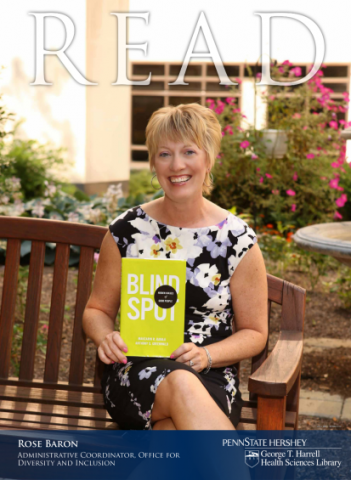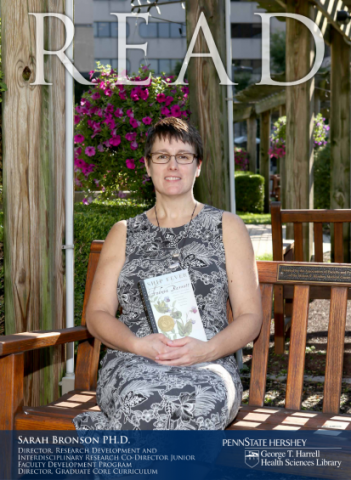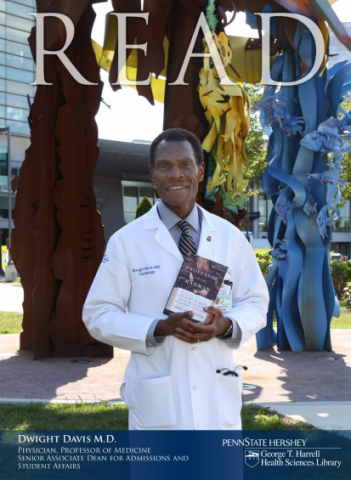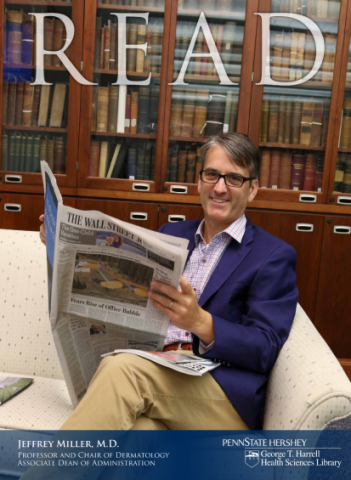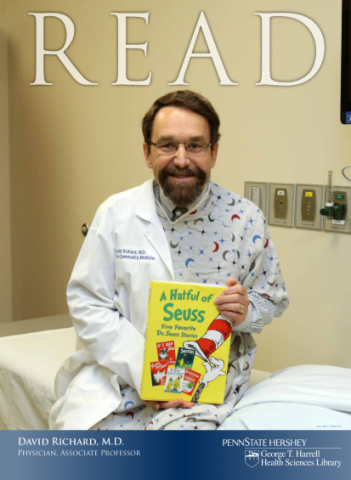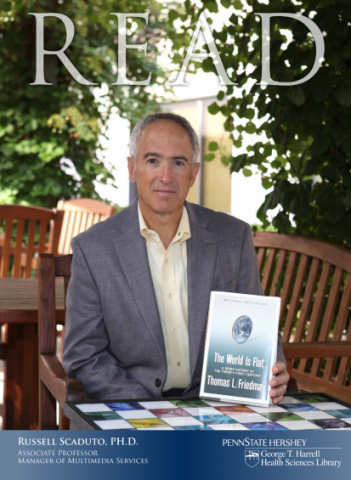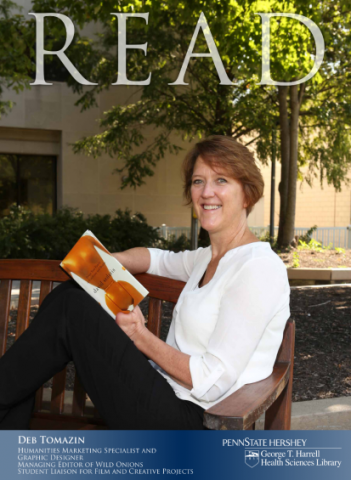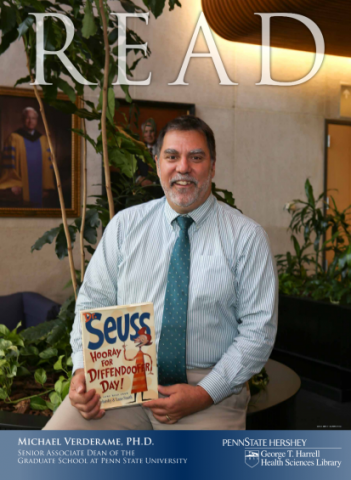Rose Baron
Administrative Coordinator, Office For Diversity And Inclusion
Blind Spot–Hidden Biases of Good People By Mahzarin R. Banaji, Anthony G. Greenwald
The first thought that comes to my mind when planning a vacation is “what book I am going to take along?” Like most people I read for enjoyment, my favorite author is Nicholas Sparks. At first I thought I’d pick one of his novels to recommend, but then I realized that I had been incredibly inspired to read Blind Spot: Hidden Biases of Good people, after hearing one of the authors, Dr. Mahzarin Banaji at a conference I attended. Dr. Banaji captured the audience’s attention and kept it. Her one hour presentation flew by and I felt myself wanting to hear more of what she had to say. The “Good People” in the title refers to those of us who strive to align our behavior with our intentions. The aim of Blind Spot is to explain the science in plain language to help a person achieve that alignment. It’s all about the science right? This book is an easy read and uncovers the fact that we all have hidden biases from a lifetime of experience. One particular part of the book that I enjoyed very much; talks about steps we can take to reduce our own hidden biases, such as placing a screensaver that displays a diverse array of humanity to remind us and keep us alerted to the range of diversity in the world. I really enjoyed this book.
When I think of the Harrell Library I might not think of a “book” at first but more of the vast array of resources in the library from the staff to the programs that they offer and support. I personally think we are lucky to have such a resource. I have enjoyed being able to contribute to the displays that are featured in the cases outside of the library. I have more than once sent an email or dropped by when I have needed assistance.
Sarah Bronson, Ph.D.
Director, Research Development And Interdisciplinary Research
Co-director Junior Faculty Development Program
Director, Graduate Core Curriculum
Ship Fever And Other Stories By Andrea Barrett
First, as with many of my favorite reads, Ship Fever was handed to me by one of my best buddies, Kris Hogquist. We grew up together as scientists and she is both a voracious reader and intuitive expert on what resonates with me.
Second, fiction is not my go-to genre; however, historical fiction surrounding interesting scientists and scientific discovery keeps me reading. Weave in stories about living the scientist life at any level in an engaging way and you have Ship Fever.
Third, a quirk about me the reader is that many times I do not finish the book. I am a little superstitious about finding the right book at the right time and if it is not working, the book goes on the pile by my bed to simmer. Hence, my love of short stories, essays, letters, journals, poetry, that can be picked up and put down with little consequence. Ship Fever went through just such a simmer. I read most of the book while on holiday in December of 2013 and then stalled, just at the beginning of the final and namesake story. When I decided this was the book, I found a boarding pass revealing when and where I had set it aside. Makes me smile to think that it was my chosen book even though I had not yet read what many will feel is the most fantastic story in the collection.
Dwight Davis, M.D.
Physician, Professor Of Medicine Senior Associate Dean For Admissions And Student Affairs
The Professor and the Madman By Simon Winchester
A wonderful gem of a book written by Simon Winchester that tells the history of the writing of the Oxford English Dictionary (OED) woven around the developing relationship between the editor (James Murray) and a prolific contributor to the dictionary (Dr. William Chester Minor). Dr. Minor was a civil war surgeon in the federal army and was committed to an insane asylum for murder during the time of his contributions to the OED.
Behind this story is the painstaking cataloging of the English language that took seventy years to complete with over 400,000 words and 1.8 million quotations to help define the words! Each chapter of the book begins with a relevant word for chapter and the OED definition.
Jeffery Miller, M.D.
Professor And Chair Of Dermatology Associate Dean Of Administration
For resources, I like to read the Economist – helps me focus externally, the environment in which healthcare must operate. And I get to learn how other industries, like higher education, are coping with outside economic forces.
David Richard, M.D.
Physician, Associate Professor
The Sneetches and Other Stories By Dr. Seuss
Reading provides an outlet for exploration, imagination and discovery and each book brings different meaning to each individual reader. I read daily and have an eclectic reading list ranging from history and biographies to ethics and mysteries. So why choose The Sneetches by Dr. Seuss as my READ poster selection? As a family physician, I need to be able to relate to varying age groups and this short story does so with ease. From the fanciful illustrations that capture the imagination of children to the message of equality and unity, readers are left with a feel good moment and, perhaps, a little Seussian smirk to lighten their day. As health care providers, hopefully we are left with the feeling that we should be treating our patients the same way that we would want to be treated as a patient. As the accompanying poster photo represents, when we enter each encounter with an understanding of the vulnerability of a patient mixed with the healing qualities that are the embodiment of our white coats, it is at that moment when we are at our best.
Russell Scaduto, Ph.D.
Associate Professor, Manager Of Multimedia Services
The World is Flat, A Brief History of the Twenty-First Century By Thomas L. Friedman
I chose this book because it brought me to realize the immense impact that our ‘Information Age” has on all of our lives. It was an eye-opener.
Thomas Friedman aptly lays out how our rapid advance in technology has changed everything. In reading his work, one can step back and see how the Internet and associated technologies has changed our everyday practices, including the way we learn, teach, conduct scientific research and manage business. The title of the book is an obvious play on the earlier belief, back in the day of Christopher Columbus, that the world was thought to be flat. But today, it is flat (technically speaking of course).
The seed for his book came from Freidman’s earlier trip to India, when he witnessed first-hand the impact of what the Indian government was doing on a national scale. It began a systematic investment in technology and technology education to bring India into the new global business environment afforded by the rapid advance of the Internet. The Internet and the speed of information exchange has put nearly every person and country on the same level playing field. And, more importantly, he shows that those individuals and countries that adapt to this new world will thrive at the expense of those that do not.
This book also helped me see the importance of our George Harrell Library in this new world. Although there is an unprecedented amount of information at hand, it’s not very useful unless it’s organized it in a fashion where you can find what you need. Our library plays a key role in data organization and in training us how to locate and take advantage of this information.
Deb Tomazin
Humanities Marketing Specialist And Graphic Designer Managing
Editor Of Wild Onions
Student Liaison For Film And Creative Projects
Dress Your Family in Corduroy and Denim By David Sedaris
I made the mistake of reading the book, Dress Your Family in Corduroy and Denim, by David Sedaris, on a crowded airplane, several years ago. I not only laughed-out-loud, but I managed to totally embarrass my teenage kids who were sitting several rows behind me.
David Sedaris’s short stories and essays are simply hilarious, sometimes cynical, sometimes neurotic, enjoyably honest, always entertaining, and personally very relatable. They are stories about bits and pieces of his life and family, so seemingly unreal, they feel surreal. I often times found myself saying out loud, “That’s me, that was my life!” But then quickly realize I’m not a gay man, with a brother nicknamed “The Rooster,” fearing zombies, and drowning a mouse in a bucket at midnight. Yet somehow I can not only relate to the situation, but feel the familiarity of it.
For me, David Sedaris’s writing gave a voice to family dysfunction, I’m not sure that was his intention, but his stories made me realize that my family is no different from anyone else’s. So instead of feeling ashamed and thinking I come from a family of crazies, I learned to find the humor in all of it. People who know me, know that I love a good sense of humor, and I love making other people laugh.
Michael Verderame, Ph.D.
Senior Associate Dean Of The Graduate School At Penn State University
Hooray for Diffendoofer Day By Dr. Seuss, Jack Prelutsky
As a postdoctoral fellow working at the bench one day I was running late to a seminar while trying to finish an experiment that had dragged on a bit; mistakenly thinking I was planning to ignore the seminar, my advisor walked away saying, “It’s ideas, Verderame, ideas.” This moment is replayed every time I prepare material for a teaching session.
While so many of us reveled in Dr. Seuss’ children’s stories growing up, Theodor Geisel’s works frequently have powerful messages for we adults. How many of us have received or have given “Oh, the Places You’ll Go!” to a new college graduate?
Hooray for Diffendoofer Day by Dr. Seuss (“with a little help from Jack Prelutsky”) challenges educators at every level to think about both how we teach, and what we teach. A quirky, unconventional teacher and a rambunctious class run headlong into a very traditional high-stakes exam that determines not the students’ future, but the very existence of the school. "Not Flobbertown!", the students exclaim.
I have been privileged to have worked my entire career in graduate education. My goal for all our graduate students is captured so eloquently in one simple Seussian phrase by that quirky, unconventional teacher, Miss Bonkers:
We've taught you that the earth is round,
That red and white make pink,
And something else that matters more -
We've taught you how to think."
I continue to strive to reach Miss Bonkers’ lofty standard!
